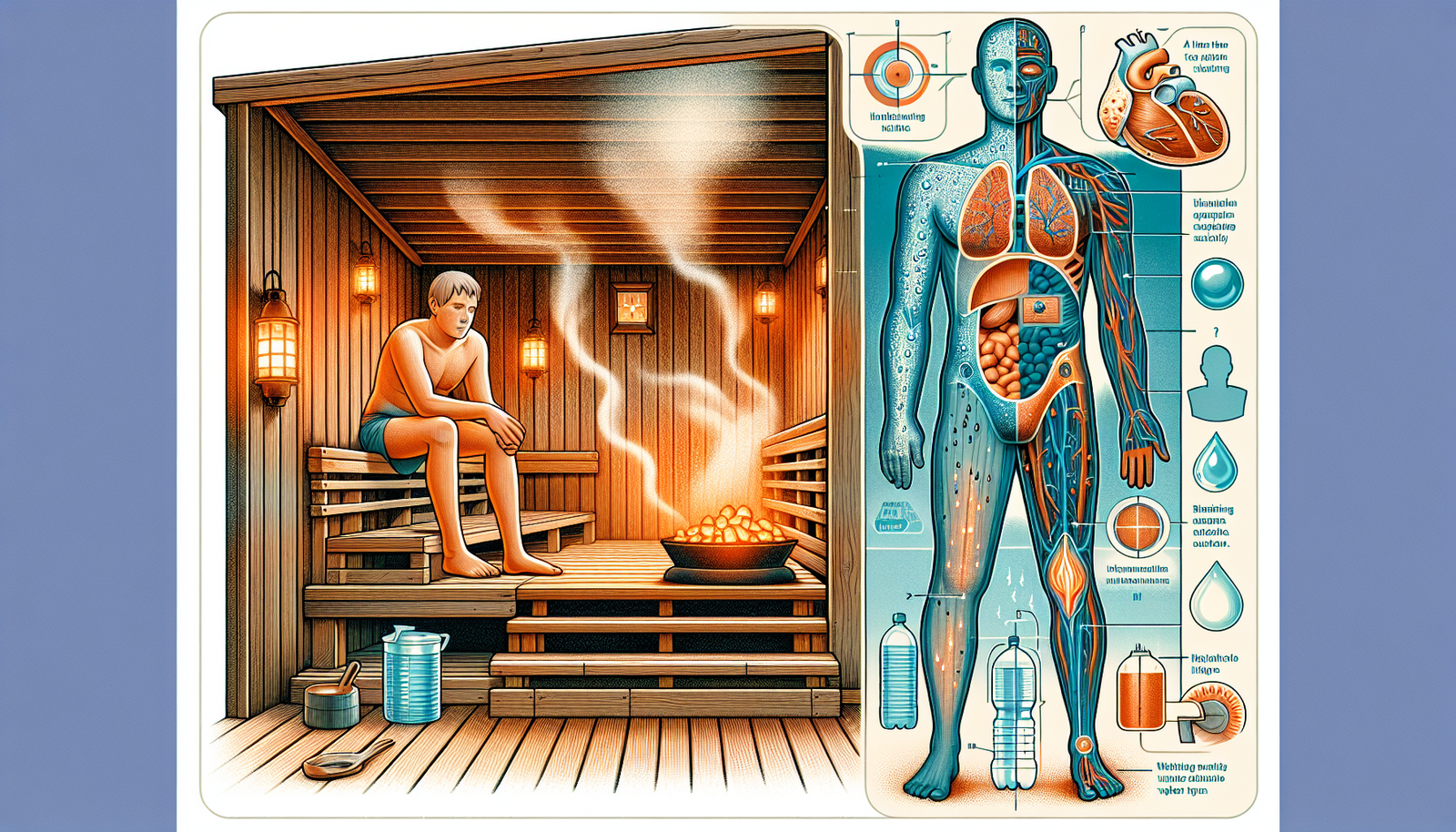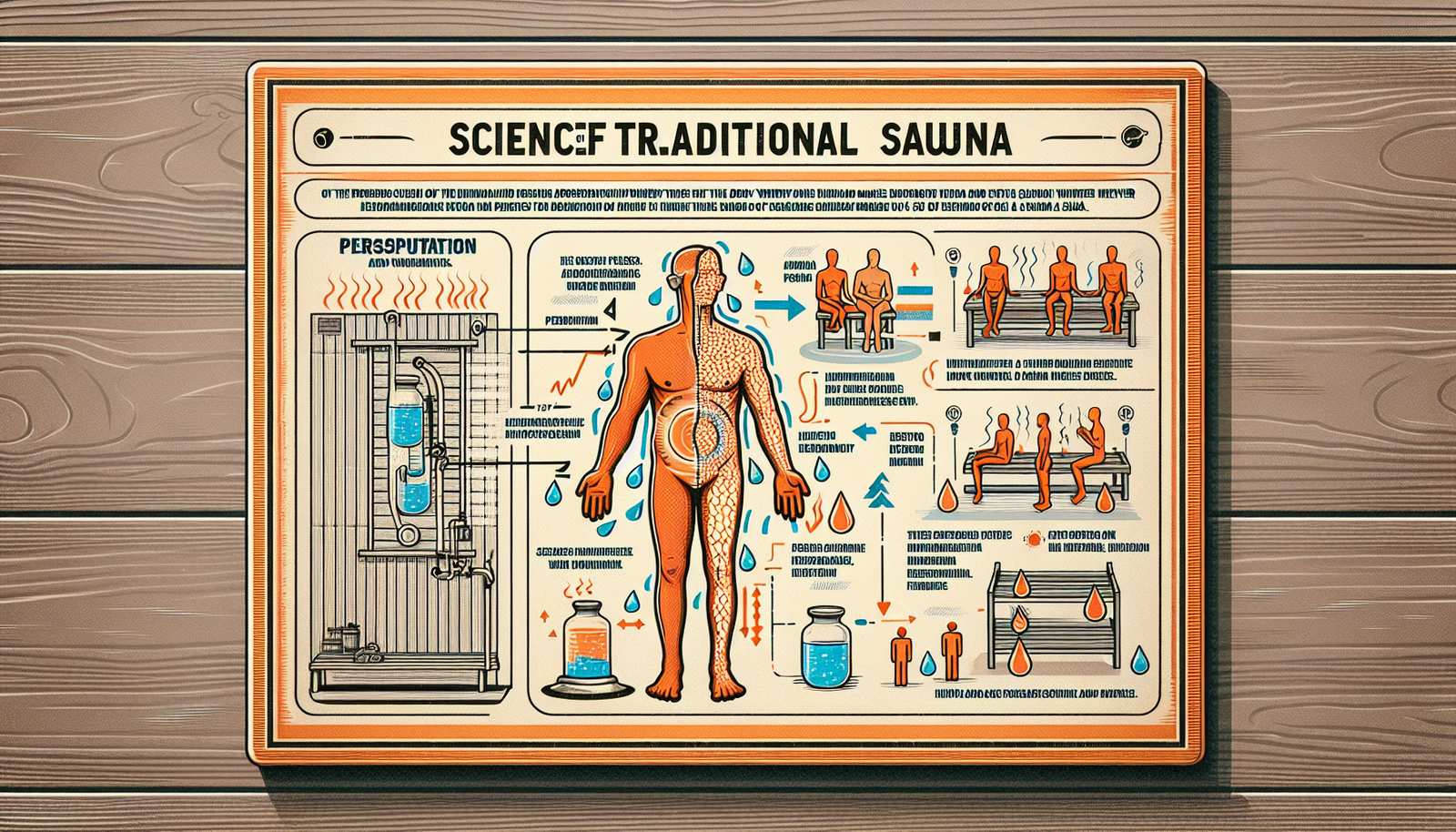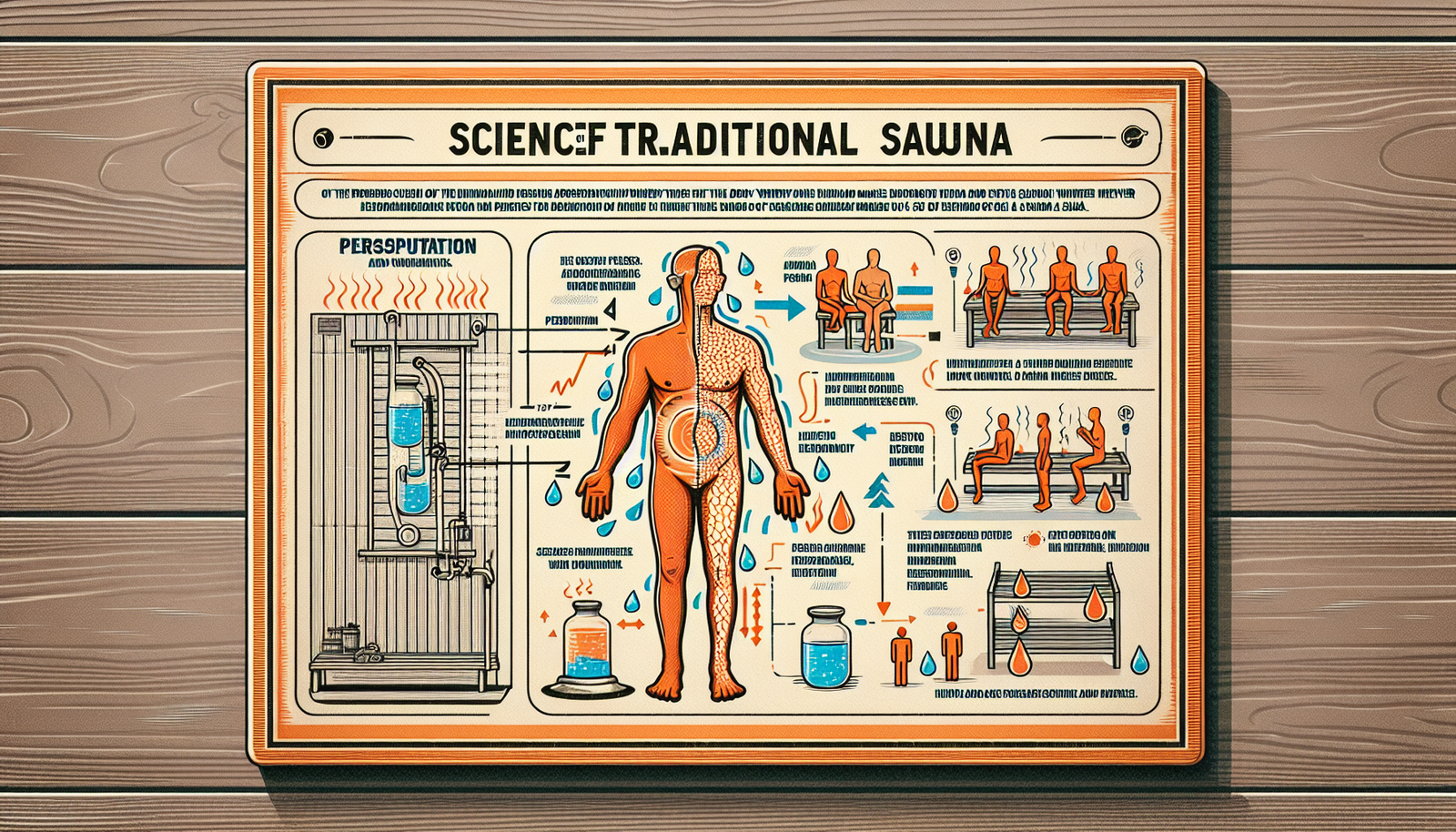Imagine stepping into a traditional sauna, feeling the enveloping warmth seep into your skin as you begin to sweat. It’s a familiar sensation, a therapeutic escape from the everyday stresses of life. But have you ever wondered how this heat affects your hydration levels? In this article, we’ll explore the intriguing relationship between traditional saunas and hydration, unveiling the surprising effects it has on your body’s water balance. So grab a towel and prepare to uncover the secrets behind the steamy world of saunas and their impact on your hydration.

Overview of traditional saunas
Traditional saunas have been used for centuries for relaxation, detoxification, and various health benefits. These saunas typically involve the use of high temperatures and dry heat to induce sweating. In this article, we will explore the impact traditional saunas have on hydration and discuss strategies to maintain proper hydration during sauna sessions.
Understanding hydration
Hydration is essential for overall health and wellbeing. It refers to the process of maintaining adequate fluid balance in the body. Our bodies are composed of approximately 60% water, and proper hydration is crucial for optimal bodily functions.
Importance of hydration
Being properly hydrated has numerous benefits. It helps regulate body temperature, aids digestion, supports organ function, lubricates joints, and transports nutrients throughout the body. Staying hydrated also promotes healthy skin and can enhance athletic performance.
Factors affecting hydration
Several factors can impact hydration levels. These include the climate or environment, activity level, age, and overall health. Additionally, certain medications, medical conditions, and lifestyle factors such as alcohol and caffeine consumption can affect hydration. It is essential to be mindful of these factors and adjust fluid intake accordingly.
How sweating affects hydration
Sweating plays a significant role in maintaining body temperature and eliminating waste products. When we sweat, our body releases moisture through the pores, which evaporates and cools the skin. However, sweating also leads to water loss and can potentially impact hydration levels.
Explanation of sweating
Sweating is the body’s natural cooling mechanism. It is primarily controlled by the autonomic nervous system, which triggers sweat glands to release sweat when body temperature rises. Sweating is influenced by factors such as physical exertion, ambient temperature, and humidity.
Influence of sweat on hydration
Sweating can cause fluid loss, potentially leading to dehydration if not properly managed. The amount of fluid lost through sweating varies depending on factors such as the intensity and duration of physical activity, environmental conditions, and individual sweat rates. It is crucial to replenish lost fluids to maintain proper hydration.
Dehydration risks in saunas
Saunas, especially traditional ones, expose individuals to high temperatures and promote profuse sweating. While saunas offer various health benefits, they also pose risks of dehydration if precautions are not taken.
Impact of high temperatures on dehydration
The high temperatures in saunas cause the body to perspire more profusely than in normal conditions. This excessive sweating can lead to increased fluid loss. Additionally, in a hot environment, the body’s cooling mechanisms may be less effective, further contributing to fluid loss and potential dehydration.
Effects of prolonged sauna sessions on hydration
Prolonged sauna sessions, particularly those lasting more than the recommended duration, can further exacerbate dehydration risks. Extended exposure to high temperatures and continuous sweating can lead to significant water loss, potentially leaving the body dehydrated. It is essential to be mindful of the duration and frequency of sauna sessions to minimize dehydration risks.

Water loss during sauna sessions
Sauna sessions can result in significant water loss through sweating. Understanding the amount of water lost can help individuals gauge their hydration needs and take appropriate measures to maintain fluid balance.
Quantity of water lost through sweating
The amount of water lost through sweating varies among individuals. Factors such as body size, composition, fitness level, and sweat rate all contribute to the variability in water loss. On average, individuals may lose between 0.5 to 3 liters of water during a sauna session, depending on the duration and intensity of the session.
Methods to measure water loss
To determine the extent of water loss during a sauna session, individuals can weigh themselves before and after the session. The difference in weight is an estimation of the fluid lost through sweating. It is essential to note that this measurement method does not differentiate between water loss and fat loss.
Effects of saunas on electrolyte levels
Electrolytes are essential minerals that play a vital role in various bodily functions. Sauna sessions can affect electrolyte balance, which is crucial for overall hydration and proper organ function.
Explanation of electrolytes
Electrolytes, such as sodium, potassium, calcium, and magnesium, are responsible for maintaining fluid balance, supporting nerve and muscle function, and regulating pH levels in the body. Sweating not only leads to water loss but also causes the excretion of electrolytes.
Impact of saunas on electrolyte balance
Sauna sessions can result in electrolyte imbalances, particularly if fluid and electrolyte replenishment is insufficient. The loss of electrolytes through sweat can disrupt the body’s delicate balance, potentially leading to muscle cramps, dizziness, fatigue, and other symptoms associated with electrolyte disturbances. It is crucial to be aware of these risks and take measures to replenish electrolytes during and after saunas.
Maintaining hydration during sauna sessions
Keeping hydrated during sauna sessions is essential to prevent dehydration and ensure a safe and enjoyable experience. Incorporating strategies to maintain hydration can help individuals derive maximum benefits from their sauna sessions.
Pre-sauna hydration strategies
Before entering a sauna, it is crucial to hydrate adequately. Drink plenty of fluids, preferably water, to ensure your body is well-hydrated. Avoid consuming beverages that can cause diuresis, such as alcohol and caffeinated beverages, as they may increase fluid loss.
Hydration practices during sauna sessions
While in the sauna, it is vital to listen to your body’s signals. Stay mindful of your hydration status and take frequent sips of water to replenish lost fluids. Consider small, frequent drinks to avoid discomfort. However, be cautious not to consume excessive amounts of water during a session, as this can lead to discomfort or overhydration.
Post-sauna hydration tips
Proper hydration after a sauna session is crucial for replenishing lost fluids and supporting the body’s recovery process. Neglecting post-sauna hydration can prolong the effects of dehydration and affect overall wellbeing.
Replenishing lost fluids
After the sauna, prioritize rehydration by consuming ample fluids. Opt for water, herbal teas, or electrolyte-rich beverages to replenish lost fluids. Monitor your urine color; a pale yellow color indicates adequate hydration.
Importance of electrolyte balance post-sauna
In addition to fluid replenishment, consider restoring electrolyte balance after a sauna session. Consuming foods rich in electrolytes or incorporating electrolyte-enhanced beverages can help restore the body’s electrolyte levels. This is especially important if the sauna session resulted in extensive sweating.
Hydration considerations for different individuals
Hydration needs may vary among individuals, and certain groups may require particular attention to maintain optimal hydration during saunas.
Hydration needs for athletes
Athletes engaging in intensive training or competitions may have increased hydration needs compared to the general population. They should focus on proper hydration before, during, and after sauna sessions to support their performance and recovery.
Effects on elderly individuals
Elderly individuals may be more susceptible to dehydration due to age-related changes in the body’s fluid balance mechanisms. They should pay special attention to their hydration status during saunas and consider shorter sessions or lower temperatures to minimize dehydration risks.
Hydration considerations for pregnant women
Pregnant women should prioritize hydration during saunas to support both their own health and the well-being of the baby. However, it is important to consult with a healthcare professional before engaging in sauna sessions during pregnancy, as individual circumstances may vary.
Conclusion
Traditional saunas offer a range of health benefits, but it is essential to understand how they can affect hydration. High temperatures and profuse sweating can lead to significant fluid and electrolyte loss, potentially resulting in dehydration if not properly managed. By staying mindful of hydration needs, practicing pre, during, and post-sauna hydration strategies, and considering individual hydration considerations, individuals can safely enjoy the benefits of traditional saunas while maintaining optimal hydration levels.

